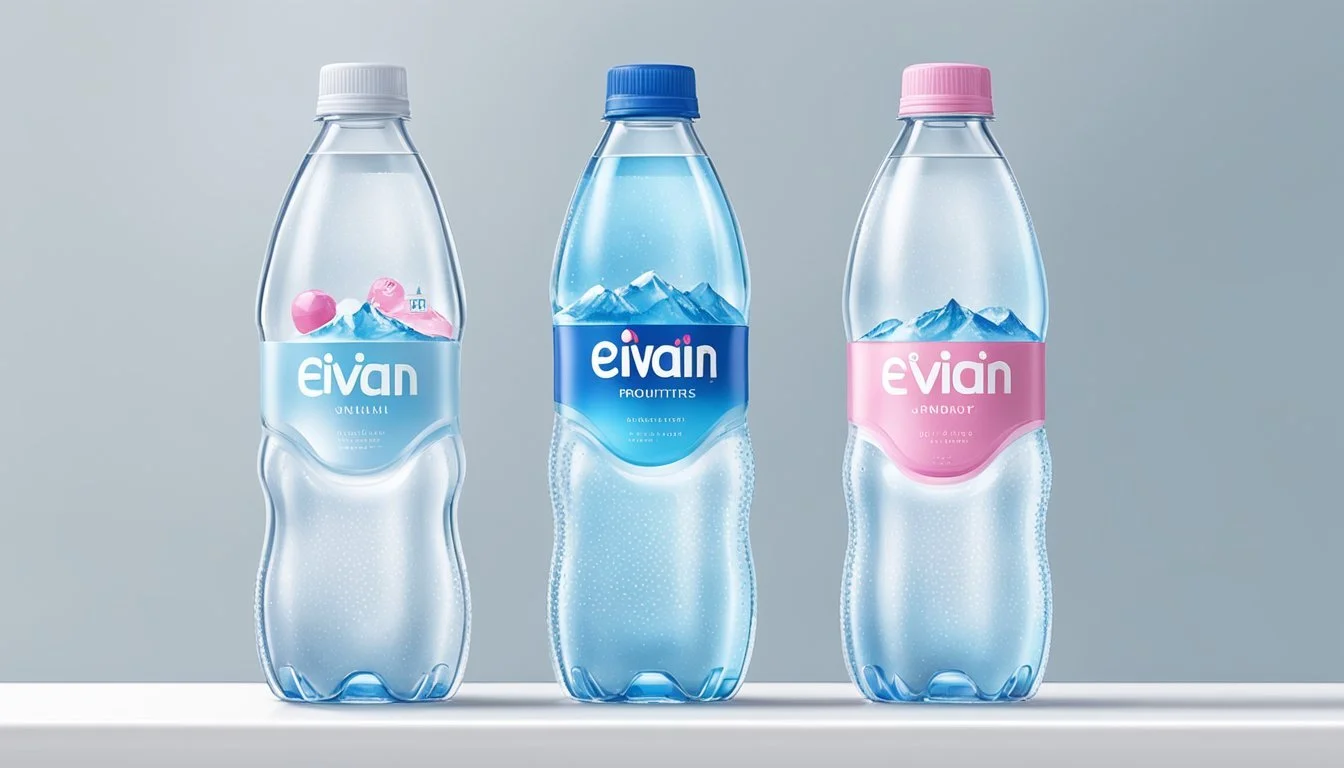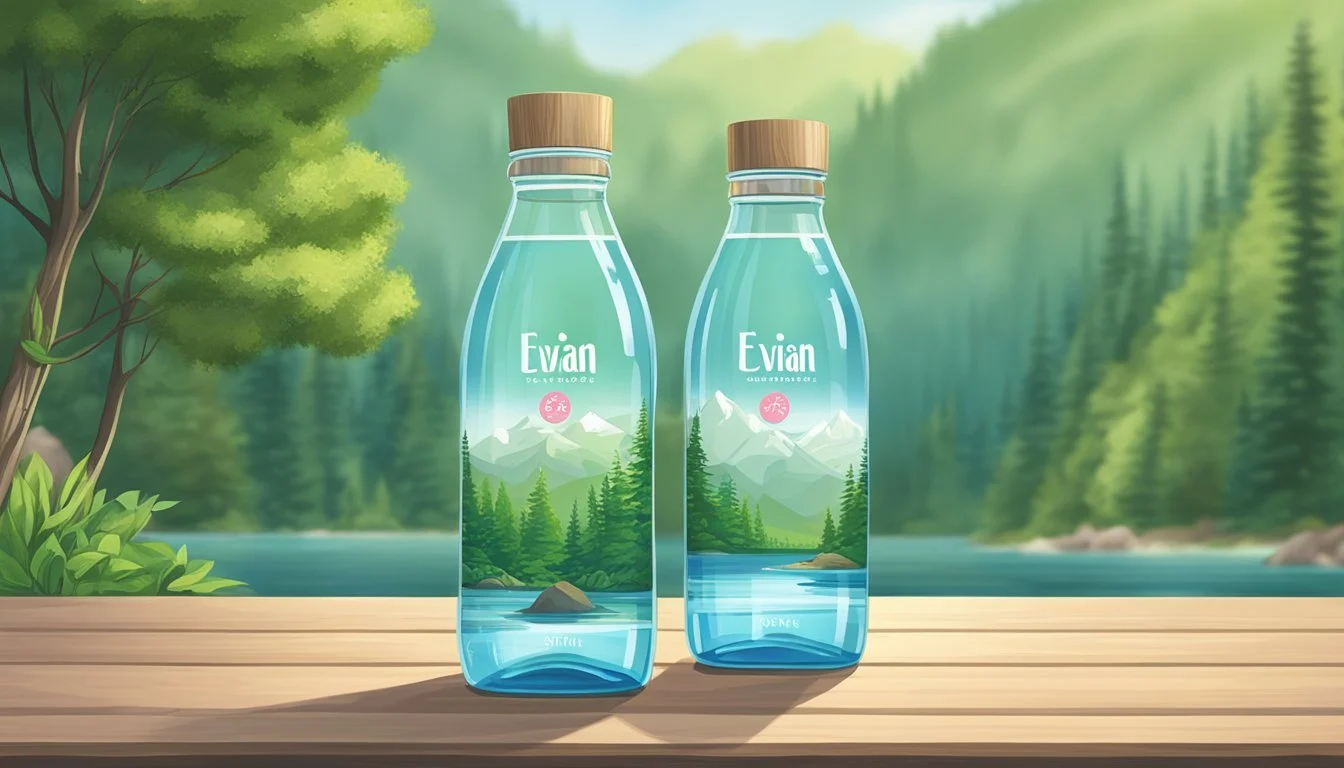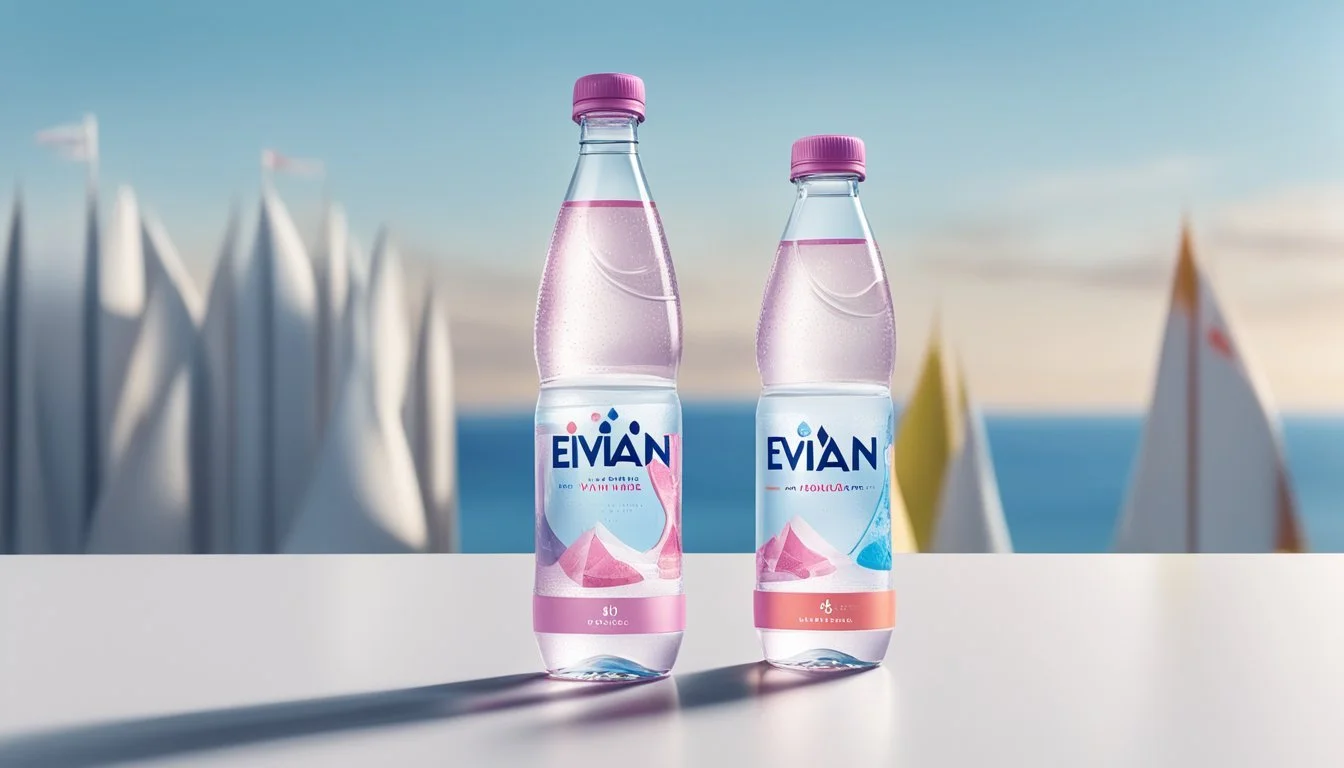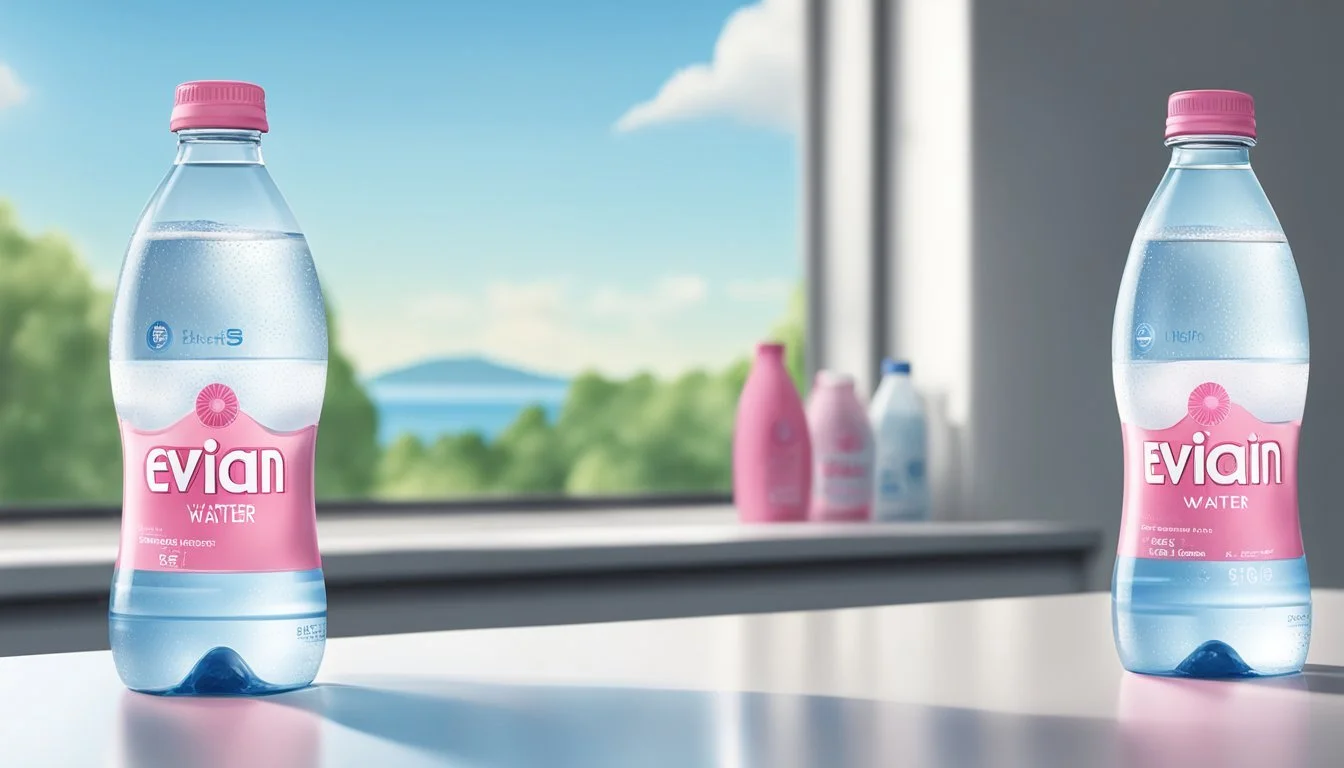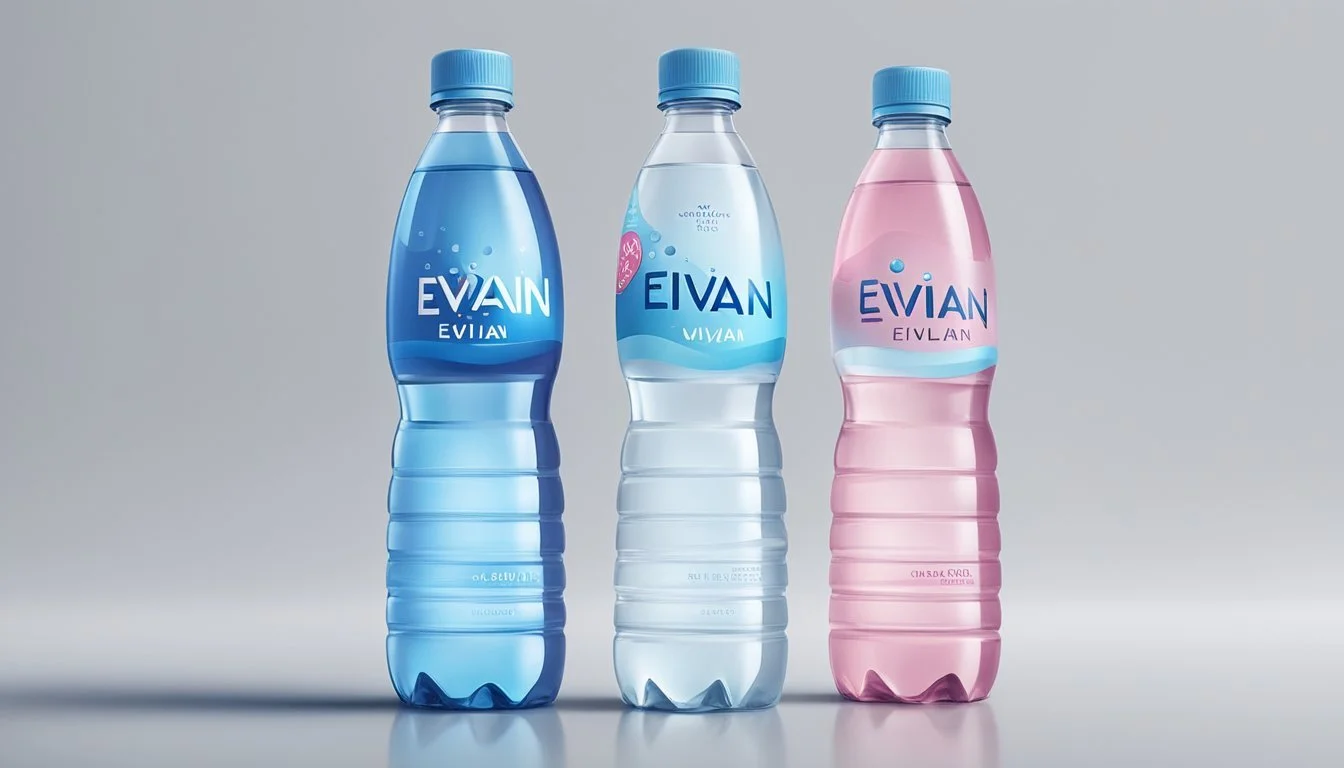Evian vs. Just Water
A Comprehensive Comparison for the Best Hydration Choice
When evaluating bottled water options, consumers often look for both quality and brand trustworthiness. Two prominent names in the market are Evian and Just Water, each with a distinctive approach to providing consumers with bottled water. Evian is renowned for its mineral-rich water sourced from the French Alps, a result of a 15-year filtration journey through glacial sand. It is one of several premium waters that promises a natural balance of electrolytes and a distinctive taste.
Just Water, on the other hand, positions itself with an environmentally conscious ethos. The company offers water in carton-based packaging, which is touted as a more sustainable alternative to traditional plastic bottles. Just Water's spring water is sourced from the Adirondack Mountains, and the brand stresses the use of renewable materials in its packaging and the ethical sourcing of its water.
Both brands have taken steps toward sustainability, but their core offerings diverge at fundamental levels. Evian emphasizes the natural origins and mineral content of its water, while Just Water focuses on the environmental impact of the product lifecycle, from sourcing to packaging. The question for consumers is which of these factors—quality of water or sustainability practices—weighs more heavily on their decision when choosing between Evian and Just Water.
Examining Bottled Water
When one considers bottled water, there are multiple facets that determine the quality and desirability of the product. Two notable brands in the market are Evian and Just Water. Evian, sourced from the French Alps, is a natural spring water well-known for its mineral content, which includes calcium, magnesium, and potassium. These minerals are vital for bone health and overall well-being.
Just Water, on the other hand, emphasizes its eco-friendly packaging and ethical sourcing. The water is sourced from a spring in the Adirondack Mountains and boasts a high pH level, which is appealing to those seeking alkaline water for its claimed health benefits.
When comparing the two, the choice often comes down to personal preference and values:
Taste: Some may prefer the natural sweetness imparted by the minerals in Evian, while others might favor the crispness of Just Water.
Sustainability: Just Water's commitment to reduced plastic usage and carbon footprint might resonate more with environmentally conscious consumers.
Price: Evian is often positioned as a premium product, which is reflected in its price point. Just Water, while still aiming for sustainability, is generally more accessible.
Here's a quick reference for their characteristics:
Feature Evian Just Water Source French Alps Adirondack Mountains Mineral Content High (Calcium, Magnesium) Standard pH Level Neutral Alkaline Packaging Plastic Bottle Plant-based Carton Price Premium Moderate
Consumers must weigh these factors when choosing their bottled water brand, as each presents its own set of benefits.
Evian Water Overview
Evian Water emerges as a top choice in the bottled water market, recognized for its unique mineral content, origin from the French Alps, and commitment to sustainability.
Source and Origin
Evian begins its journey as rain and snow in the heart of the French Alps. After a 15-year natural filtration process through glacial rocks, it is sourced directly from springs in the town of Évian-les-Bains. The protected catchment area ensures the water maintains its purity without the need for chemical treatment.
Mineral Content and Health Benefits
This alpine mineral water is abundant in calcium, vital for strong bones, and magnesium, important for regular muscle and nerve functions. Evian has a balanced mineral composition and an alkaline pH level of around 7.2, which can contribute to overall well-being.
Mineral Concentration Calcium 80 mg/l Magnesium 26 mg/l Potassium 1 mg/l
Taste Profile
Evian is often described as having a clean, crisp, and refreshing flavor, a testament to its natural Alpine origin. The presence of minerals contributes to its characteristic smooth and balanced taste, preferred by many consumers worldwide.
Sustainability Practices
Evian places a strong emphasis on environmental stewardship. They are committed to becoming a carbon neutral brand by 2020 and are working on various initiatives to protect the natural ecosystem around the source. They invest in eco-friendly packaging and promote recycling to minimize plastic waste.
Packaging and Branding
Evian's packaging is designed with both functionality and aesthetics in mind, boasting a recognizable bottle shape that reflects the brand's premium positioning. Their use of plastic bottles includes recycled materials, and they continue to innovate in creating sustainable packaging solutions. The Evian branding aligns with an image of natural luxury, appealing to health-conscious consumers who value purity and quality.
Evian Water brings a touch of French luxury, with its rich mineral content and sustainable approach, to bottled water enthusiasts around the globe.
Just Water Overview
Just Water offers a unique blend of sustainability and quality in their bottled water products. This section provides insight into the source of Just Water's contents, their purification methods, the taste profile of their water, their environmental initiatives, and their innovative packaging design.
Source and Purity
Just Water sources its spring water from the Adirondack Mountains in New York State, ensuring a natural and pure base for their product. They utilize water from carefully selected springs fed by an aquifer, which provides naturally occurring minerals.
Purification and Filtration Methods
The company employs a proprietary filtration process known as Hydro-7™, which is designed to maintain the water's natural pH and mineral content. This process is said to reduce more contaminants than the standard reverse osmosis, resulting in high-quality purified water.
Taste and Quality Comparisons
Water taste plays a significant role in preference for bottled water. The natural purification process used by Just Water aims to preserve the spring water's fresh taste, differentiating it from other brands that may use more industrial purification methods.
Environmental Impact
Just Water is highly committed to sustainability. They focus on reducing carbon emissions in their production and providing boxed water as an alternative to plastic bottles. Their emphasis on environmental responsibility is as integral to their brand as the quality of the water they offer.
Bottle Design and Materials
The bottle design of Just Water is reflective of their dedication to sustainability. The boxed water cartons they use are made from 82% renewable resources, including paper from responsibly managed forests, which reinforces the brand's eco-friendly message.
Comparative Analysis
In this section, we will evaluate Evian and Just Water, focusing on their mineral composition, pH level and acidity, taste assessment, and environmental considerations, providing insights on how these factors differentiate the two bottled water brands.
Mineral Composition
Evian water is sourced from the French Alps and is known for its rich mineral content, including calcium and magnesium, which are essential for bone health and blood pressure regulation. The water naturally filters through glacial sands where it acquires electrolytes and beneficial minerals before being bottled.
Just Water, on the other hand, touts its product as being rich in naturally occurring minerals from spring water sourced in the United States. While specific content levels are not as prominently disclosed as with Evian, Just Water also contains a variety of minerals and electrolytes essential for hydration and overall well-being.
pH Level and Acidity
Evian boasts a slightly alkaline pH level of around 7.2, which can help neutralize the body's acidity. Alkaline water is often sought after for its potential health benefits, including the claim that it can help in balancing the body's pH.
Just Water emphasizes its natural pH which is also typically alkaline, but specific pH levels can vary. Both Evian and Just Water offer a higher pH level compared to average tap water, which generally has a neutral pH of 7.
Taste Assessment
When it comes to taste:
Evian is often described as smooth and clean with a refreshing flavor profile that reflects its pristine source.
Just Water prides itself on a pure taste that emphasizes its natural sourcing and gentle processing.
Taste tests conducted by consumers reveal polarizing preferences; some prefer the terroir that Evian's mineral blend imparts, while others advocate for the crispness of Just Water.
Environmental Considerations
Evian has taken significant strides toward environmental sustainability:
It commits to using 100% recycled PET plastic in their bottles by 2025.
New production sites are planned to be carbon-neutral, contributing to reduced ecosystem pollution.
Just Water positions itself as an eco-friendly alternative within the bottled water market:
Their packaging is a paper-based carton made from 82% renewable resources, which lessens the ecological footprint.
They emphasize responsible sourcing and community engagement to protect local ecosystems.
Both brands work to address the environmental impacts of bottled water but approach it from different angles—Evian through technological innovation in its bottling processes, and Just Water through sustainable packaging and resource management.
Health Implications
When considering the health implications of Evian vs. Just Water, one must assess aspects such as hydration effectiveness, mineral content and electrolyte balance, as well as the comparison with other water sources like tap and bottled mineral waters.
Hydration and Electrolytes
Both Evian and Just Water provide hydration, a fundamental need for all bodily functions. Evian, sourced from the French Alps, boasts a high mineral content including calcium and magnesium, which are critical for maintaining electrolyte balance in the body. These electrolytes facilitate vital tasks such as muscle function and nerve transmission.
Just Water, predominantly focused on eco-friendliness, also provides hydration, but does not emphasize mineral content as much as Evian. Instead, Just Water highlights its low acidity and purity—traits important for those looking for straightforward hydration with a reduced environmental impact.
Comparison with Tap and Mineral Waters
Evian:
Tap Water: Compared to tap water, Evian has a unique mineral composition, with higher concentrations of calcium and magnesium. Depending on the locality, tap water may contain various levels of minerals, fluoride, and other contaminants.
Mineral Water: Evian falls under the category of mineral water and contains naturally occurring minerals and electrolytes, without added substances found in some bottled mineral waters.
Just Water:
Tap Water: Just Water offers an alternative to tap water, focusing on filtering and purity. They aim to minimize common tap water contaminants.
Mineral Water: Unlike Evian, Just Water doesn't position itself as a mineral-rich product. It provides essential hydration with an emphasis on its eco-conscious packaging.
Market and Consumer Trends
In the landscape of bottled water, trends are driven by brand popularity, consumer preferences, and innovative practices within the industry.
Brand Popularity
Fiji Water has emerged as a favorite among American consumers, outshining competitors with high net favorability ratings. Close contenders PepsiCo’s Aquafina and The Coca-Cola Co.’s Dasani remain strong players with established consumer bases. In comparison, boutique brands like Evian, known for their premium offerings, and Just Water, recognized for sustainability, target niche segments.
Fiji Water: Net favorability rating of 57 among U.S. adults
Aquafina: Second with a rating of 44
Dasani, Evian, Nestle Pure Life: Tied for third with a rating of 42
Consumer Preferences
Water drinkers demonstrate a tilt towards brands offering refreshing flavor and purified waters. Brands like Smartwater and Life WTR cater to this demand with added electrolytes for taste and hydration. Penta, offering ultra-purified water, prides itself on a proprietary process. **Consumer segmentation for brands like **Evian includes health-conscious individuals, athletes, and those with specific health needs.
Health-Conscious Consumers: Attracted to the clean taste and health benefits
Athletes: Seek hydration with added electrolytes
Specific Health Needs: Prefer the purity and mineral content
Innovation in Bottled Water
Bottled water brands continue to innovate, focusing on the source and filtration process. The trend towards alkaline water filtered through volcanic rock appeals to those seeking mineral enrichment. Similarly, brands that revolve around unique sources, like Evian's glacial origins, set themselves apart. Coca-Cola and PepsiCo are investing in eco-friendly packaging and sustainable sourcing to meet growing environmental concerns from consumers.
Alkaline Water Brands: Gaining popularity for mineral content
Eco-friendly Packaging: A significant factor in brand preference
Environmental Impact of Bottled Water
The production and disposal of bottled water significantly affect global ecosystems and contribute to pollution. Companies are now exploring sustainable packaging solutions to mitigate these issues.
Ecosystems and Pollution
The environmental cost of bottled water is substantial. Plastic bottles, often composed of materials such as polyethylene terephthalate (PET), can take hundreds of years to decompose, leading to severe ecological disruption. Pollution from these bottles affects wildlife and ecosystems, sometimes resulting in species loss. A recent analysis indicates that shifting to bottled water can result in 1.43 species lost per year solely in the context of one city's consumption patterns. Furthermore, the manufacture and transport of plastic bottles release significant amounts of greenhouse gases and contribute to resource depletion.
BPA, a compound found in some plastic bottles, has raised health and pollution concerns, leading some manufacturers to produce BPA-free products.
The use of convenience plastic bottles encourages a throwaway culture that directly threatens sustainability efforts.
Sustainable Packaging Solutions
In response to the environmental impact, bottled water brands like Evian and Just Water are exploring more sustainable packaging options:
Evian commits to becoming a circular brand by 2025 with all of its plastic bottles to be made from 100% recycled plastic.
Just Water uses a paper-based bottle with a plant-based cap, touting a 74% reduction in carbon emissions compared to a standard PET bottle.
Brand Packaging Material Carbon Emission Reduction Evian 100% Recycled Plastic Aiming for circularity Just Water Paper-based, Plant-based Cap 74% reduction
Both companies are part of a broader movement towards reducing the environmental footprint of bottled water through innovative packaging and increased use of recycled materials. While sustainable packaging is not a complete solution to the environmental issues posed by bottled water, it represents a critical step towards lessening bottled water's overall impact.
Guidelines and Regulations
In the bottled water industry, stringent regulations ensure that products like Evian and Just Water meet high standards for quality and safety. These guidelines are designed to protect consumers, maintain product purity, and provide transparency in the market.
Quality Control Standards
Regulatory bodies such as the Environmental Protection Agency (EPA) in the United States impose specific quality control standards on bottled water producers. They must adhere to the criteria which cover a multitude of factors, including purity and levels of sodium and bicarbonate. For example, Evian Natural Spring Water adheres to these standards by undergoing extensive testing to ensure that it meets or exceeds the EPA's requirements. It includes analysis of the mineral composition that results in a unique blend beneficial for health, such as calcium, magnesium, and potassium.
Purity: Both organic and inorganic substances must fall below threshold levels.
Sodium: Although essential for health, it must be kept within safe consumption limits.
Bicarbonate: Levels must be carefully monitored to ensure safety and taste.
International Bottled Water Certifications
Internationally, bottled water brands like Evian may also seek certifications from various organizations to reaffirm their commitment to quality. These certifications often indicate compliance with global standards for quality and safety in production.
International Organization for Standardization (ISO): Certifies that bottling processes meet international safety and quality standards.
National Sanitation Foundation (NSF): A certification indicating the water meets health and safety standards set for bottled water.
Both Evian and Just Water have operations that span beyond local borders, and obtaining these certifications helps assure consumers that they are choosing a product that not only complies with stringent national regulations but also resonates with global quality benchmarks.
Taste-Testing Methodology
To accurately compare the taste of Evian and Just Water, the methodology centers around a controlled, blind taste test to assess the water for flavor profile, including refreshing taste and minerality.
Setting Up a Blind Taste Test
In setting up a blind taste test, participants received water from indistinguishable containers to prevent brand recognition from influencing their assessment. The temperature of both Evian and Just Water was standardized to ensure a consistent tasting environment because temperature can affect the perception of taste. Tasters were given equal volumes of water and instructed to cleanse their palate between samples.
Criteria for Judging
Judges evaluated the waters on two main criteria:
Refreshing Flavor: Which water offers a more crisp and refreshing taste when consumed, leaving the palate feeling cleansed.
Minerality: The level of mineral taste present in each water, distinguishing the smoothness or hardness that contributes to the overall flavor profile.
Participants recorded their preferences on a scale, with separate scores for refreshing flavor and minerality. These scores would later be compiled and analyzed to determine which water is perceived to have a better taste.
Final Verdict
When comparing Evian and Just Water in the quest to identify the best bottled water, several factors come into play. One should consider the water’s source, taste, pH balance, environmental impact, and packaging.
Source: Evian originates from the French Alps, renowned for natural filtration and mineral content. Just Water sources its water from the Adirondack Mountains and emphasizes responsible sourcing.
Taste: Both brands offer a crisp taste, but Evian is often recognized for its unique mineral profile that enhances its flavor.
pH Balance: Evian displays a neutral pH that aligns closely with the human body's natural pH, while Just Water also promotes a balanced pH but may slightly vary.
Environmental Impact: Just Water prides itself on using plant-based cartons with a significantly lower carbon footprint compared to plastic bottles. Evian has committed to becoming carbon neutral and is researching eco-friendly packaging solutions.
Packaging: Evian is typically packaged in plastic bottles, which are recyclable. In contrast, Just Water uses a paper-based bottle with a plant-based cap, which they claim is 82% renewable.
In summary, if one prioritizes environmental sustainability, Just Water may have an edge due to its innovative packaging. For those who place a higher value on taste and mineral content, Evian could be the preferred choice. Both brands demonstrate a commitment to quality and sustainability, making them leaders in the bottled water market.

